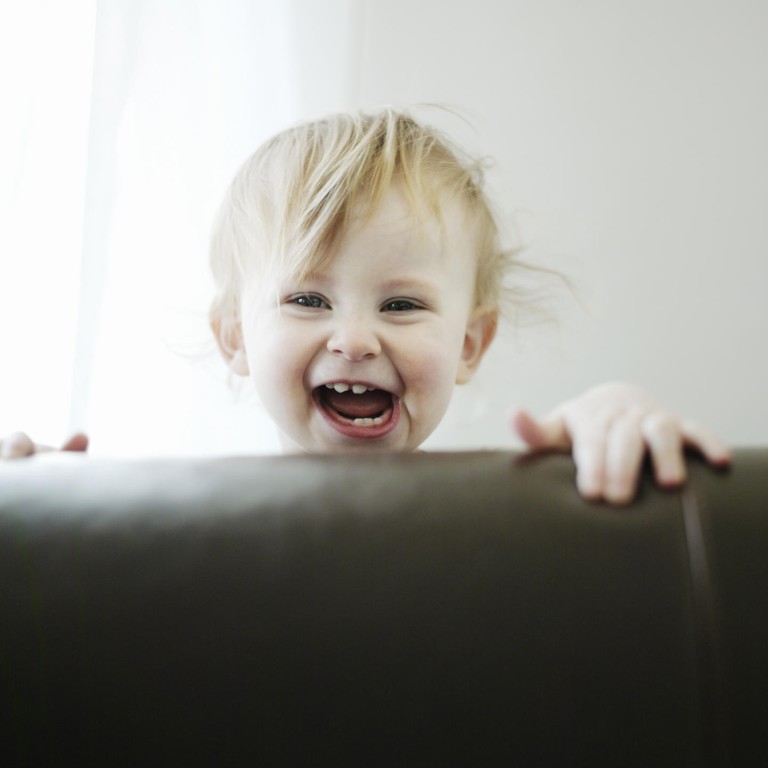
From gurgles to giggles: the development of humour
My toddler, Tom, runs across the room shrieking with delight, as I follow close behind saying in my most ominous voice: "I'm coming to getcha! I'm coming to getcha!"
It's our newest game and he loves it, often collapsing in a fit of giggles.
The other thing that has him in hysterics is me pretending to swallow a small plastic box that I keep in our bedroom, then spitting it back out. This sounds slightly revolting and a little insane, but Tom thinks it's the funniest thing ever.
"Laughter is important for children for many reasons but particularly for language development," says Jacqueline Gerard, a speech therapist at Southside Family Health Centre. "Laughter happens in nursery rhymes and in books. It happens with a different tone and usually at the end of a sentence. Babies and toddlers hear these events often in their environment and they begin to expect laughing at the end of sentences or with a particular sound or tone. Hence we have the beginning of joint attention (both caregiver and baby laugh at the same thing), turn taking (caregiver laughs and baby laughs) and even [identifying through tone] that a sentence is ending."
It's hard to believe that our chases or crazy spitting games are improving Tom's language skills, but it seems they are.
"Laughter develops as a child develops in understanding their environment, learning language and, of course, physical development," Gerard says. "One might hear babbling from a very young baby in a responsive or interactive manner, then cooing, then, at about four months, it turns into laughter."
"Toddlers find almost anything unexpected or silly funny," she says. "Peek-a-boo can be funny. Throwing food from their tray table is funny. Tickles are funny because of the feeling, but silly actions and funny voice sounds or movements will cause laughter."
Tom has found humour in a dog shaking water off of itself at the beach and in daddy tipping him upside down. I try a silly dance - he is not amused. I try some silly faces and get a chortle. It's working.
How else can I expect Tom's sense of humour to develop? "When a child begins to accumulate more language, at around 18 to 24 months, they understand when words don't sound as they should and will find that funny," says Gerard.
"After 24 months, a toddler can understand humorous intentions. Once a child begins to develop interactive play skills at around three years old, they may find acting out scenarios and sequences of events funny."
However, I've got some time before Tom masters anything remotely resembling a good joke, let alone stand-up.
"Jokes happen once your child has a good command of the language, usually after three years old, but sometimes before, depending on the child," says Gerard. "A child might try to imitate a 'knock-knock' joke but only tell the first line and find that very funny. You can expect more complete jokes at around four to five years. Typically, children five years and older can manipulate language so that others find humour in what they say."
Until then, the baby laughter we're enjoying now has to be one of the most precious gifts of childhood I could ever imagine.
